Filter by
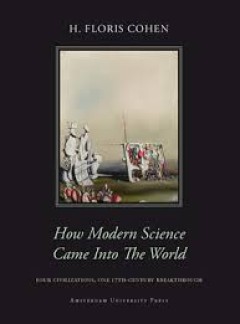
How modern science came into the world: four civilizations, one 17th-century …
H. Floris Cohen.
- Edition
- -
- ISBN/ISSN
- 9789089642394 (hardbound)
- Collation
- xl, 784 p. : ill. ; 24 cm.
- Series Title
- -
- Call Number
- 509 COH h
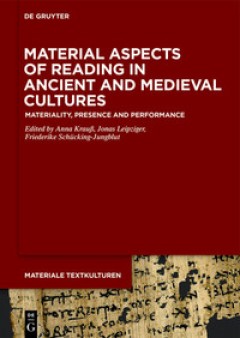
Material aspects of reading in ancient and medieval cultures : materiality, p…
This publication seeks to endeavour the relationship between material artefacts and reading practices in ancient and medieval cultures. While the acts of reception of written artefacts in former times are irretrievably lost, some of the involved artefacts are preserved and might comprise hints to the ancient reading practices. In form of case studies, the contributions to this volume examine …
- Edition
- -
- ISBN/ISSN
- 9783110639247
- Collation
- VIII, 266 p.
- Series Title
- Materiale Textkulturen, 26
- Call Number
- 306 MAT m
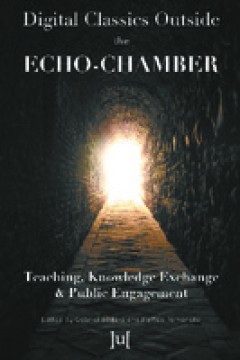
Digital classics outside the echo-chamber : teaching, knowledge exchange and …
This volume, edited by the organizers of the “Digital Classicist” seminars series, presents research in classical studies, digital classics and digital humanities, bringing together scholarship that addresses the impact of the study of classical antiquity through computational methods on audiences such as scientists, heritage professionals, students and the general public. Within this conte…
- Edition
- -
- ISBN/ISSN
- 9781909188471
- Collation
- XII, 221 p.
- Series Title
- -
- Call Number
- 070.5 DIG d
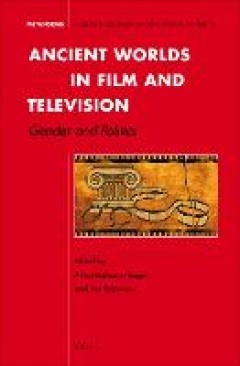
Ancient worlds in film and television : gender and politics
This volume reinvigorates the field of Classical Reception by investigating present-day culture, society, and politics, particularly gender, gender roles, and filmic constructions of masculinity and femininity which shape and are shaped by interacting economic, political, and ideological practices. Readership: All interested in Classics, the Classical Tradition, Film Studies, Gender Studies, Am…
- Edition
- -
- ISBN/ISSN
- 9789004241923
- Collation
- VII, 372 p.
- Series Title
- -
- Call Number
- 791.43658 ANC a
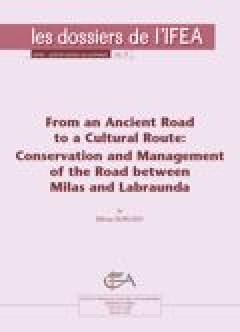
From an ancient road to a cultural route
The main subject of the study is revealing “cultural routes”, by the evaluation of ancient roads which have cultural accumulation on and around them. Considering the unique character of cultural routes, their formation as a consequence of cultural accumulation in a region is the main objective of the project. The project aims to explore the basic principles of cultural route planning and m…
- Edition
- -
- ISBN/ISSN
- 9782362450396
- Collation
- 83 p.
- Series Title
- -
- Call Number
- 306 DUR f
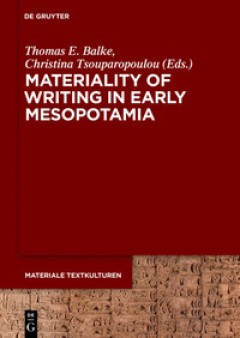
Materiality of writing in early Mesopotamia
This volume presents recent research on the relationship between the material format of text-bearing artefacts, the texts they carry, and their genre. The essays cover a vast period, from the counting stones of the late 4th millennium BCE to the time of the Great Hittite Kingdom in the 2nd millennium BCE. The breadth of substantive focus allows new insights of relevance to scholars in both Anci…
- Edition
- -
- ISBN/ISSN
- 9783110459630
- Collation
- VI, 301 p.
- Series Title
- Materiale Textkulturen
- Call Number
- 411.7 BAL m
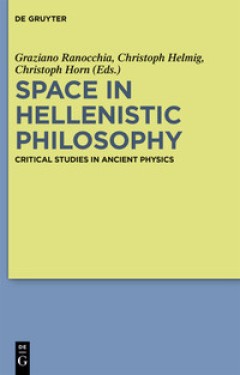
Space in Hellenistic Philosophy : Critical Studies in Ancient Physics
The volume discusses the notion of space by focusing on the most representative exponents of the Hellenistic schools and explores the role played by spatial concepts in both coeval and later authors who, without specifically thematising these concepts, made use of them in a theoretically original way. Renowned scholars investigate the philosophical significance and bring to light the problemati…
- Edition
- -
- ISBN/ISSN
- 9783110365856
- Collation
- XII, 224 p.
- Series Title
- -
- Call Number
- 114.0938 HEL s
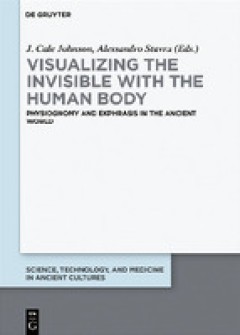
Visualizing the invisible with the human body : physiognomy and ekphrasis in …
Physiognomy and ekphrasis are two of the most important modes of description in antiquity and represent the necessary precursors of scientific description. The primary way of divining the characteristics and fate of an individual, whether inborn or acquired, was to observe the patient’s external characteristics and behaviour. This volume focuses initially on two types of descriptive literatur…
- Edition
- -
- ISBN/ISSN
- 9783110642698
- Collation
- VI, 501 p.
- Series Title
- Science, Technology, and Medicine in Ancient Cultures
- Call Number
- 480 JOH v
 Computer Science, Information & General Works
Computer Science, Information & General Works  Philosophy & Psychology
Philosophy & Psychology  Religion
Religion  Social Sciences
Social Sciences  Language
Language  Pure Science
Pure Science  Applied Sciences
Applied Sciences  Art & Recreation
Art & Recreation  Literature
Literature  History & Geography
History & Geography